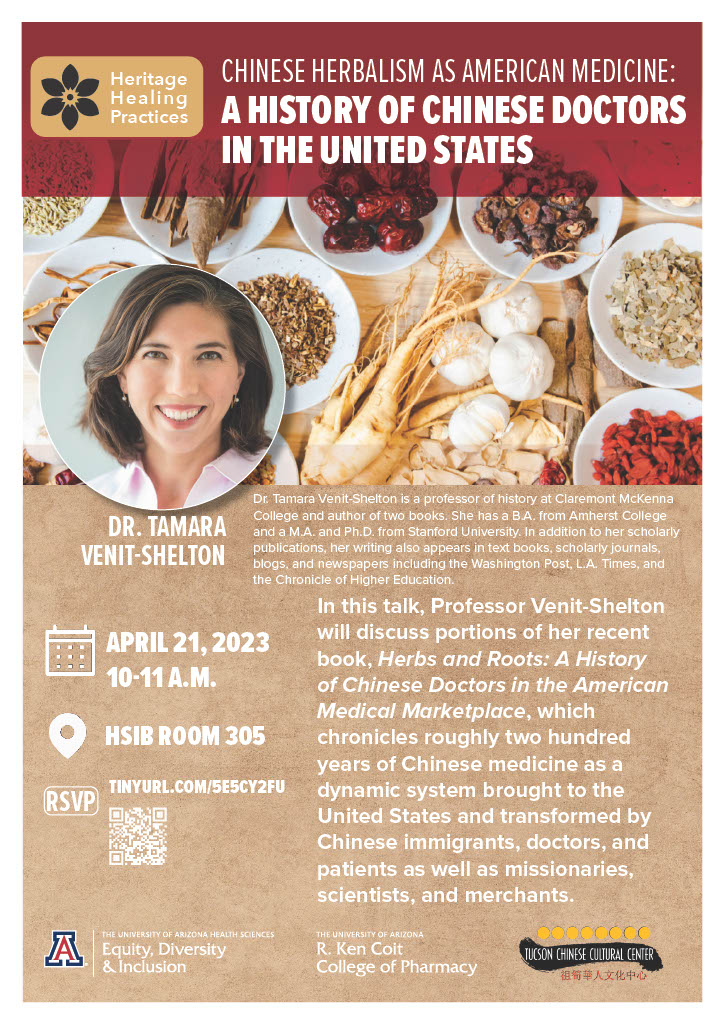
Speaker Series: Heritage Healing Practices
Speaker: Tamara Venit-Shelton, Ph.D.
About the Speaker: Tamara Venit-Shelton is a professor of history at Claremont McKenna College and author of two books, Squatter’s Republic: Land and the Politics of Monopoly in California, 1850-1900, was published as part of the Western History Series, a joint-venture between the University of California Press and the Huntington Library and the award-winning Herbs and Roots: A History of Chinese Doctors in the American Medical Marketplace, published by Yale University Press. She has a B.A. from Amherst College and a M.A. and Ph.D. from Stanford University. In addition to her scholarly publications, her writing also appears in text books, scholarly journals, blogs, and newspapers including the Washington Post, L.A. Times, and the Chronicle of Higher Education.
Topic: Chinese Herbalism as American Medicine: A History of Chinese Doctors in the United States
About the Topic: In this talk, Professor Venit-Shelton will discuss portions of her recent book, Herbs and Roots: A History of Chinese Doctors in the American Medical Marketplace, which chronicles roughly two hundred years of Chinese medicine as a dynamic system brought to the United States and transformed by Chinese immigrants, doctors, and patients as well as missionaries, scientists, and merchants. Chinese medicine has a long history in the United States, dating back to its colonial period and extending up to the present. Well before mass emigration from China to the United States began, Chinese materia medica crossed the oceans, in both directions: Chinese medicinal teas and herbs came west while Appalachian ginseng went east. Beginning in the 1850s, Chinese immigrants came to the United States and transplanted their health practices, sometimes quite literally by propagating medicinal plants in their adopted home. Chinese doctors established businesses that catered to both Chinese and non-Chinese patients. They struggled during the Great Depression and World War II, but conditions that seemed to precipitate the decline of Chinese medicine in the United States in fact laid the foundations for its rediscovery in the 1970s. Over time, Chinese medicine – along with other medical knowledge systems deemed “irregular,” “alternative,” or “unorthodox” – both facilitated and undermined the consolidation of medical authority among formally trained western-style medical scientists.

